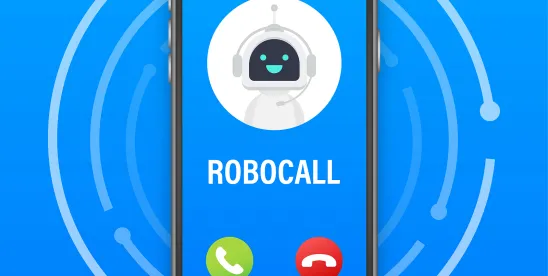The FCC’s recent Notice of Proposed Rulemaking and Notice of Inquiry was released on August 8, 2024. While the proposed Rule is, deservedly, getting the most press, it’s important to pay attention to the Notice of Inquiry.
The part which is concerning to me is the FCC’s interest in “development and availability of technologies on either the device or network level that can: 1) detect incoming calls that are potentially fraudulent and/or AI-generated based on real-time analysis of voice call content; 2) alert consumers to the potential that such voice calls are fraudulent and/or AI-generated; and 3) potentially block future voice calls that can be identified as similar AI-generated or otherwise fraudulent voice calls based on analytics.” (emphasis mine)
The FCC also wants to know “what steps can the Commission take to encourage the development and deployment of these technologies…”
The FCC does note there are “significant privacy risks, insofar as they appear to rely on analysis and processing of the content of calls.” The FCC also wants comments on “what protections exist for non-malicious callers who have a legitimate privacy interest in not having the contents of their calls collected and processed by unknown third parties?”
So, the Federal Communications Commission wants to monitor the CONTENT of voice calls. In real-time. On your device.
That’s not a problem for anyone else?
Sure, robocalls are bad. There are scams on robocalls.
But, are robocalls so bad that we need real-time monitoring of voice call content?
At what point, did we throw the Fourth Amendment out of the window and to prevent what? Phone calls??
The basic premise of the Fourth Amendment is “to safeguard the privacy and security of individuals against arbitrary invasions by governmental officials.” I’m not sure how we get more arbitrary than “this incoming call is a fraud” versus “this incoming call is not a fraud”.
So, maybe you consent to this real-time monitoring. Sure, ok. But, can you actually give informed consent to what would happen with this monitoring?
Let me give you three examples of “pre-recorded calls” that the real-time monitoring could overhear to determine if the “voice calls are fraudulent and/or AI-generated”:
- Your phone rings. It’s a prerecorded call from Planned Parenthood confirming your appointment for tomorrow.
- Your phone rings. It’s an artificial voice recording from your lawyer’s office telling you that your criminal trial is tomorrow.
- Your phone rings. It’s the local jewelry store saying your ring is repaired and ready to be picked up.
Those are basic examples, but for them to someone to “detect incoming calls that are potentially fraudulent and/or AI-generated based on real-time analysis of voice call content”, those calls have to be monitored in real-time. And stored somewhere. Maybe on your device. Maybe by a third-party in their cloud.
Maybe you trust Apple with that info. But, do you trust someone who comes up with fraudulent monitoring software that would harvest that data? How do you know you should trust that party?
Or you trust Google. Surely, Google wouldn’t use your personal data. Surely, they would not use your phone call history to sell ads.
And that becomes data a third-party can use. For ads. For political messaging. For profiling.
Yes, this is extremely conspiratorial. But, that doesn’t mean your data is not valuable. And where there is valuable data, there are people willing to exploit it.
Robocalls are a problem. And there are some legitimate businesses doing great things with fraud detection monitoring. But, a real-time monitoring edict from the government is not the solution. As an industry, we can be smarter on how we handle this.




 />i
/>i

